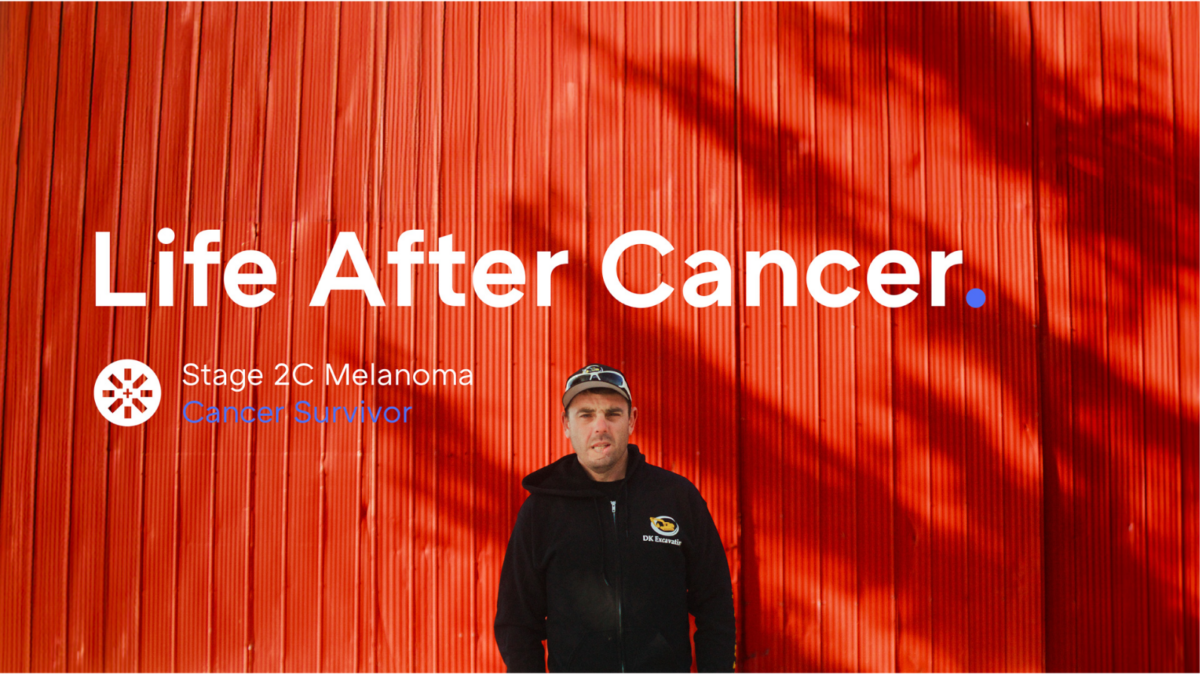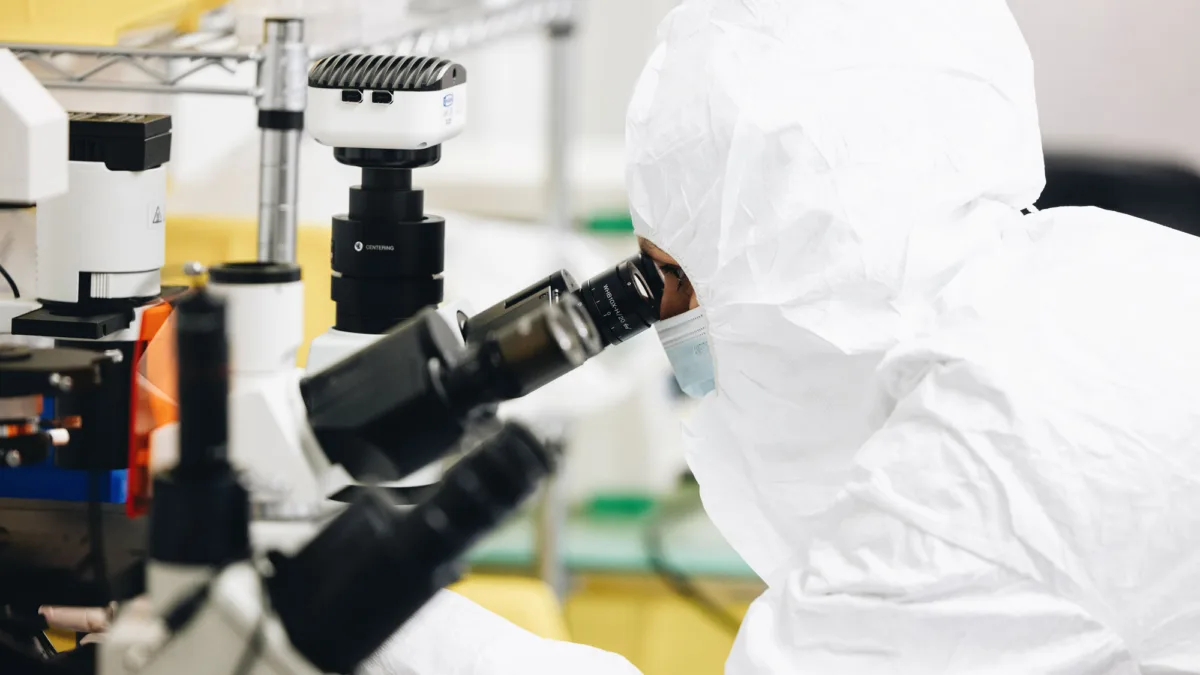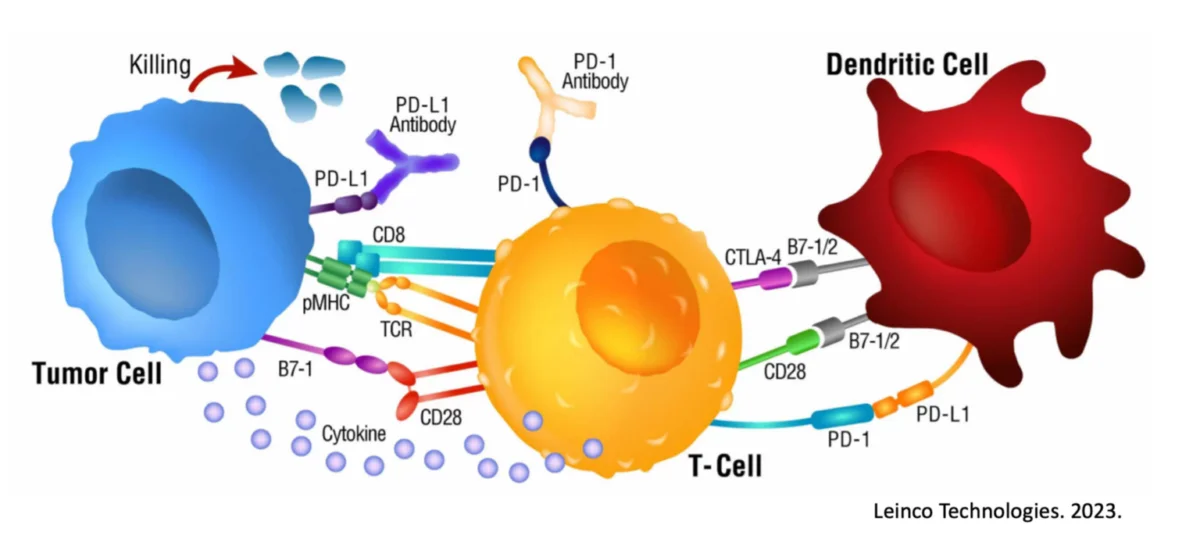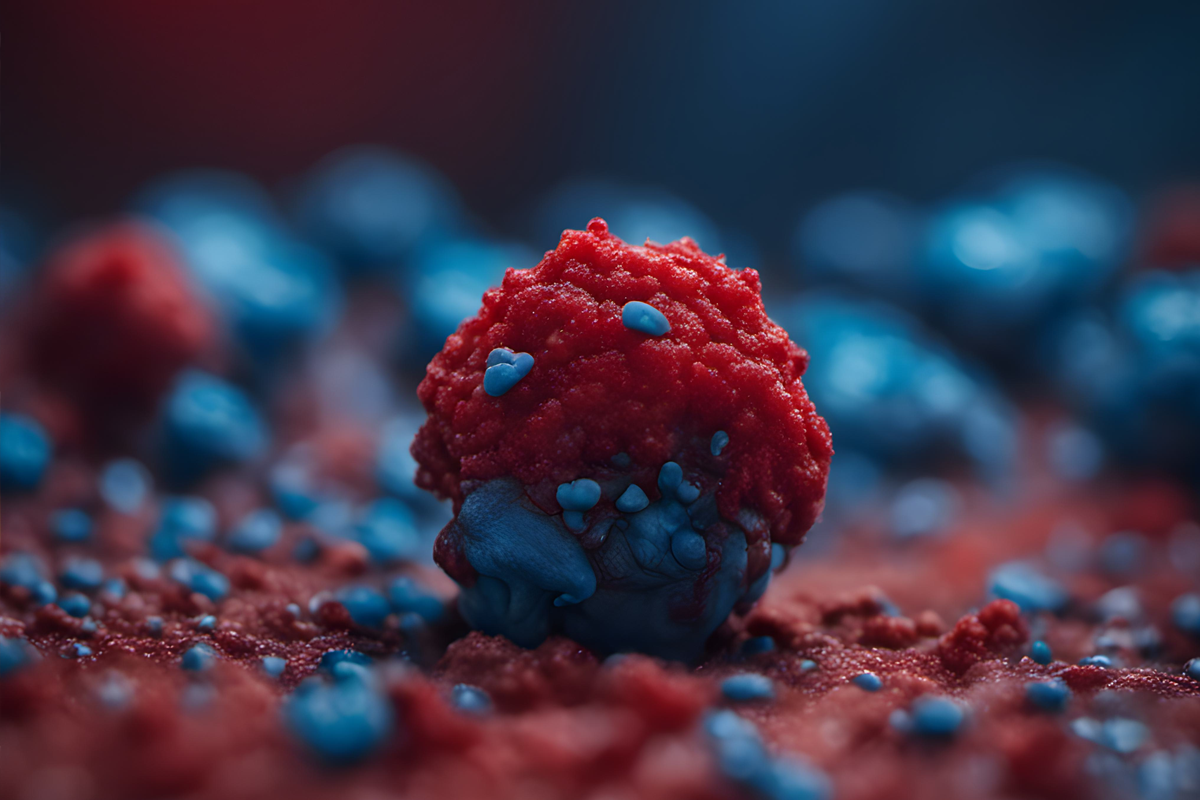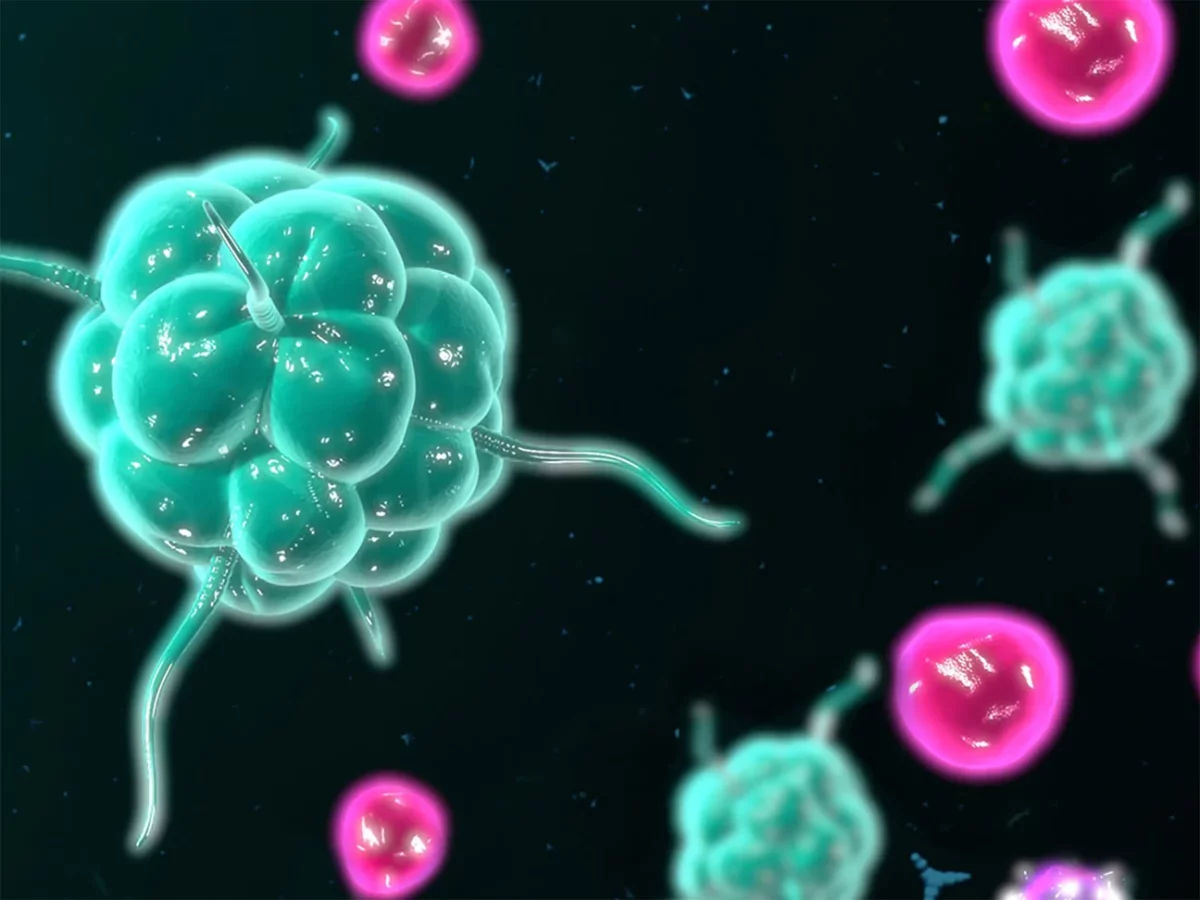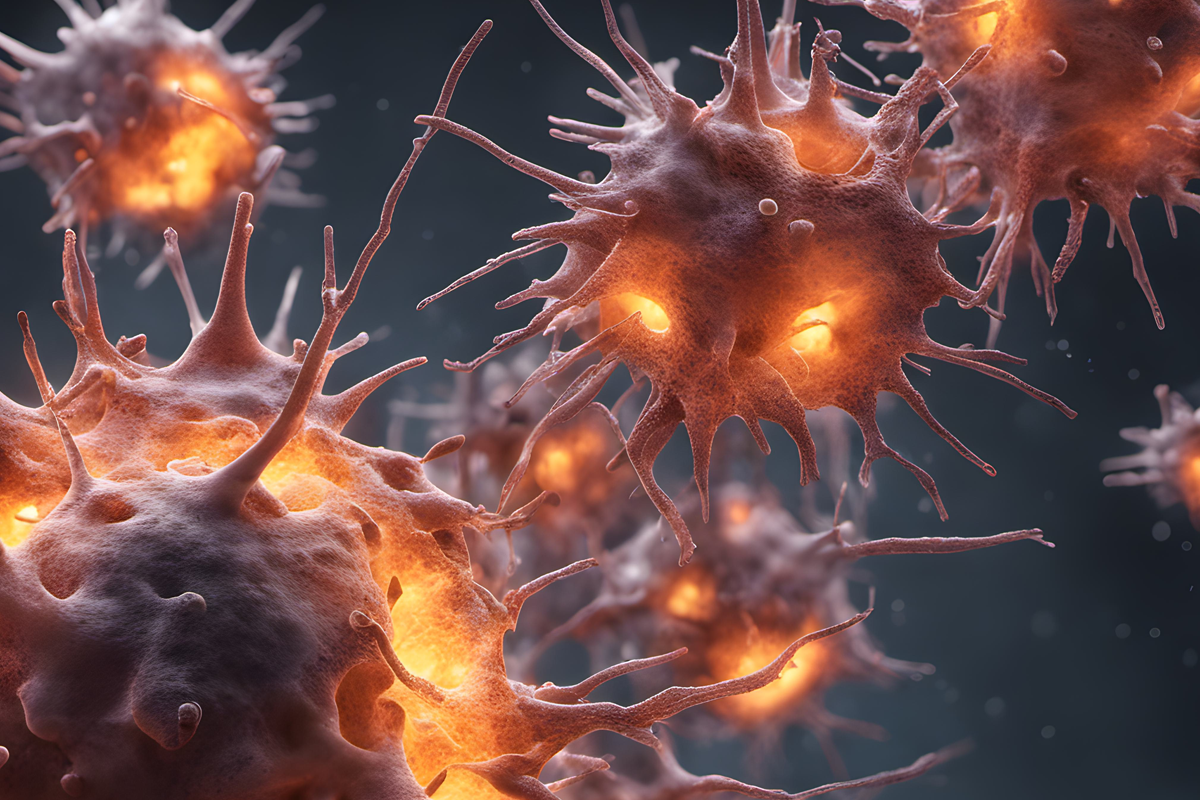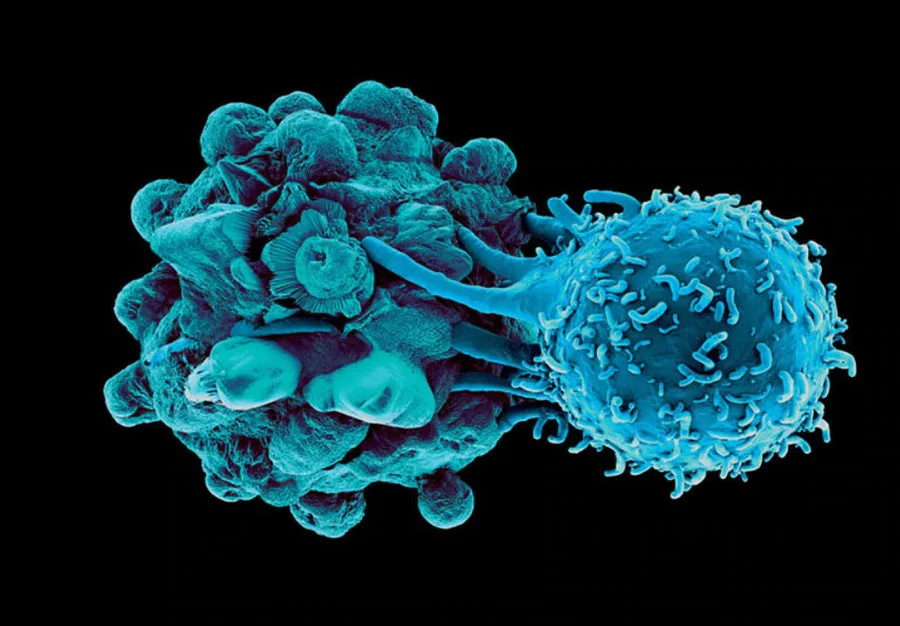Shining the Light on Vitamin D and Cancer Treatment
Worryingly, about 35-45% of Americans don’t have enough Vitamin D11, the essential nutrient that our bodies need for tasks like absorbing calcium in the gut and maintaining healthy bones2, 3.

Vitamin D also plays a role in regulating inflammation and aiding cell growth, neuromuscular and immune functions, and glucose metabolism2, 3. What’s more, it might also be a critical player in a patient’s cancer treatment!
Could Vitamin D Slow Down Cancer?
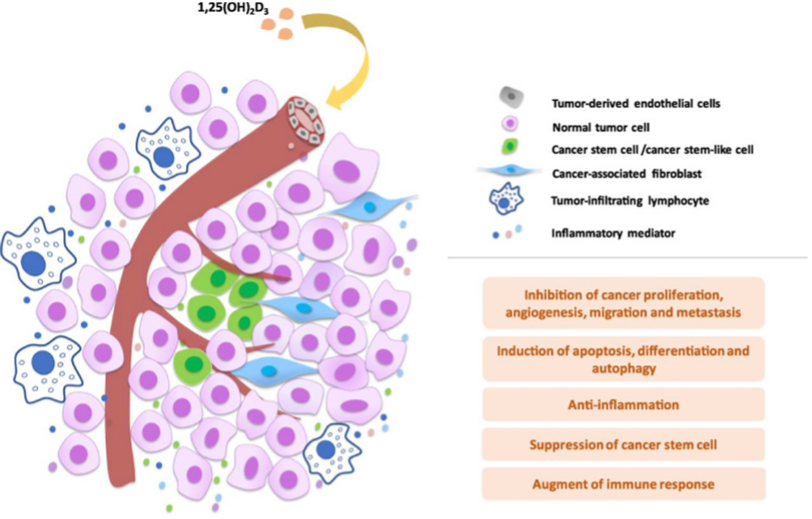
When it comes to cancer, we should definitely consider the influence of Vitamin D on its development, progression, and how it might affect immunotherapeutic treatments.
In a nutshell: Vitamin D matters a lot. Research shows that low levels of Vitamin D (below 20ng/ml) are linked to a higher risk of developing cancer and to worse outcomes in many types of cancer4, 5, 6.
Could Vitamin D Boost Cancer Immunotherapy?
So, the real question is: could Vitamin D be a helpful addition to the Immunocine Treatment regimen? Some recent findings seem to suggest so.
One study showed that treatment with Vitamin D increased the activity of specific immune cells (CD8+T and natural killer cells), which are important in destroying cancer cells. Vitamin D treatment also reduced the activity of other cells (regulatory T cells) that can protect tumors9.
Moreover, studies have shown that compounds related to Vitamin D can reduce the aggressiveness of pancreatic cancer cells and make them more responsive to treatment10, 11, 12. A clinical trial even demonstrated that Vitamin D supplementation could help overcome “immune exhaustion,” a situation where the immune system can’t effectively fight cancer anymore13.
However, we also need to consider research that highlights Vitamin D’s potential to reduce inflammation and immunity. While this is usually beneficial for our health, it might be less desirable during cancer immunotherapy, as it could inhibit the body’s response against cancer14, 15, 16.
The Double-Edged Sword: Vitamin D’s Effects on Immunity
However, we also need to consider research that highlights Vitamin D’s potential to reduce inflammation and immunity.
While this is usually beneficial for our health, it might be less desirable during cancer immunotherapy, as it could inhibit the body’s response against cancer14, 15, 16. Vitamin D is known to enhance the activity of regulatory T cells, and modulate the activity of dendritic cells17, 18, 19, potentially dampening the immune response against cancer.

Should Cancer Patient’s Consider Vitamin D or Not?
At this point, you might be wondering whether Vitamin D is more of a friend o foe for cancer patients. Here are some things to consider:
If you’re deficient in Vitamin D, supplementation can be beneficial. Studies have consistently shown that being deficient in Vitamin D is not advantageous.
While Vitamin D might reduce the activation of certain immune cells (Dendritic Cells), this isn’t an issue with the Immunocine Treatment. That’s because most of the work with these cells happens outside the body (ex vivo).
As the Immunocine Treatment progresses, there could be a risk of immune exhaustion. Vitamin D may help delay or prevent this.
Guidance for Immunocine Cancer Patients
We recommend incorporating Vitamin D supplementation up until about 2 weeks before the first Dendritic Cell Injection (given the half-life of most Vitamin D supplements).
However, once your treatment starts, we would recommend stopping Vitamin D supplementation. This will eliminate any risk of slowing down or limiting the immune response.
After the final Dendritic Cell injection, we would recommend continuing the Vitamin D supplementation as there would seem to be minimal risk with inhibiting the immune system now that it is fully activated!
References
1. Forrest, K.Y. & Stuhldreher, W.L. Prevalence and correlates of vitamin D deficiency in US adults. Nutr Res 31, 48-54 (2011).
2. Ross, A.C. The 2011 report on dietary reference intakes for calcium and vitamin D. Public Health Nutr 14, 938-939 (2011).
3. Burkhardt, R. Vitamin D: review of physiology and clinical uses. Minerva Endocrinol (Torino) 48, 88-105 (2023).
4. Timerman, D. et al. Vitamin D deficiency is associated with a worse prognosis in metastatic melanoma. Oncotarget 8, 6873-6882 (2017).
5. Heidari, Z. et al. Vitamin D Deficiency Associated with Differentiated Thyroid Carcinoma: A Case- Control Study. Asian Pac J Cancer Prev 18, 3419-3422 (2017).
6. Ismail, A., El-Awady, R., Mohamed, G., Hussein, M. & Ramadan, S.S. Prognostic Significance of Serum Vitamin D Levels in Egyptian Females with Breast Cancer. Asian Pac J Cancer Prev 19, 571-576 (2018).
7. Budhathoki, S. et al. Plasma 25-hydroxyvitamin D concentration and subsequent risk of total and site specific cancers in Japanese population: large case-cohort study within Japan Public Health Center-based Prospective Study cohort. BMJ 360, k671 (2018).
8. Liu, Y., Wang, X., Sun, X., Lu, S. & Liu, S. Vitamin intake and pancreatic cancer risk reduction: A meta-analysis of observational studies. Medicine (Baltimore) 97, e0114 (2018).
9. Kim, H. et al. Calcipotriol, a synthetic Vitamin D analog, promotes antitumor immunity via CD4+T-dependent CTL/NK cell activation. Biomed Pharmacother 154, 113553 (2022).
10. Sherman, M.H. et al. Vitamin D receptor-mediated stromal reprogramming suppresses pancreatitis and enhances pancreatic cancer therapy. Cell 159, 80-93 (2014).
11. Kim, S.I. et al. Priming stroma with a vitamin D analog to optimize viroimmunotherapy for pancreatic cancer. Mol Ther Oncolytics 24, 864-872 (2022).
12. Kong, W. et al. Synergistic autophagy blockade and VDR signaling activation enhance stellate cell reprogramming in pancreatic ductal adenocarcinoma. Cancer Lett 539, 215718 (2022).
13. Li, P. et al. 1alpha,25(OH)(2)D(3) reverses exhaustion and enhances antitumor immunity of human cytotoxic T cells. J Immunother Cancer 10 (2022).
14. Hafkamp, F.M.J., Taanman-Kueter, E.W.M., van Capel, T.M.M., Kormelink, T.G. & de Jong, E.C. Vitamin D3 Priming of Dendritic Cells Shifts Human Neutrophil-Dependent Th17 Cell Development to Regulatory T Cells. Front Immunol 13, 872665 (2022).
15. Schmitt, A.K., Puppa, M.A., Wessels, I. & Rink, L. Vitamin D3 and zinc synergistically induce regulatory T cells and suppress interferon-gamma production in mixed lymphocyte culture. J Nutr Biochem 102, 108942 (2022).
16. Saul, L. et al. 1,25-Dihydroxyvitamin D(3) Restrains CD4(+) T Cell Priming Ability of CD11c(+) Dendritic Cells by Upregulating Expression of CD31. Front Immunol 10, 600 (2019).
17. Navarro-Barriuso, J. et al. Vitamin D3-Induced Tolerogenic Dendritic Cells Modulate the Transcriptomic Profile of T CD4(+) Cells Towards a Functional Hyporesponsiveness. Front Immunol 11, 599623 (2020).
18. Barragan, M., Good, M. & Kolls, J.K. Regulation of Dendritic Cell Function by Vitamin D. Nutrients 7, 8127-8151 (2015).
19. Bscheider, M. & Butcher, E.C. Vitamin D immunoregulation through dendritic cells. Immunology 148, 227-236 (2016).
READ THIS NEXT
Overcoming a Rare & Aggressive Kidney Cancer with Immunocine: Justin’s Story
In the prime of his life, Justin was living the life many dream of — raising three young children with his wife and staying in peak physic
Read MoreOn Air with Immunocine: Matt Halpert Joins Haylie Pomroy to Discuss the Future of Cancer Treatment
Listen to this Episode on Apple Podcasts Listen to this Episode on Spotify In this episode of the Hope and Help for Fatigue and Chronic Illn
Read MoreLife After Cancer: Kevin’s Journey with Stage 2C Melanoma Cancer
Kevin, an avid dirt biker and owner of a excavation company operating heavy machinery, faced his toughest challenge not in the wild but in a
Read More


